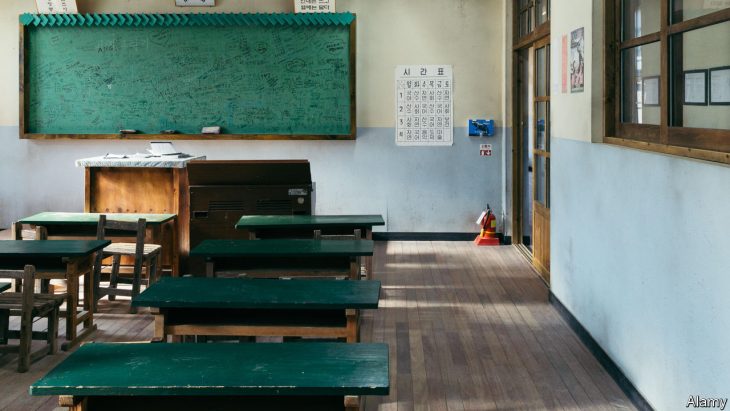Knowledge, one of the key factors to determine a person’s life. In context of Nepal academically the knowledge can be gained from two types of academic programs. First, a degree program, in which a student is involved in a course for a longer period of time and it is a program for completion of college which include several courses. Second a diploma program which are comparatively shorter than the time period required to complete a degree program. These kinds of program offer knowledge or skills of a peculiar course.
The degree program in Nepal is led by 12 universities. These university are affiliated with both public and private colleges across Nepal to offer the degree program to the student. The Universities of Nepal covers different aspect of life through different schools of college. Namely school of science, art and humanity, education, engineering, management, medical science and law.
Diploma program in Nepal is also offered by the university listed above but the leading government body for the provision of diploma program is CTEVT. They offer all kind of course that focus on developing some kind of technical skills. The courses that are offered as diploma programs are diploma in civil engineering, music, Information technology, transportation, plumbing, culinary, hospitality etc. The courses have mostly 2 or less than 2 years of time spam. Tribhuwan University and Kathmandu University also offer various kinds of diploma programs for the public.
Current scenario of Nepal shows that the enrollment in degree program is more than the enrollment of diploma courses. The 2073B.S/2074B.S academic year report of CTEVT shows there 16,135 students enrolled in diploma program where as for the same academic year of 2073/74 B.S. the enrollment of students according to report of government of Nepal is 1,50,972 which is way more than the student enrolled in diploma programs. After completion of high school, most of the students look for bachelor’s degree rather than going for diploma programs. The preference of degree program is more than the preference of diploma programs. Though, these different kinds of curriculum are important in different kind of situation, there are several reasons why student are preferring degree program over diploma after high school completion.

Level of practicality present in the academic system
Education is most important when the learnings from theories and academic concept can be taught to implement in as practical way possible. There is a variation between the practical approaches of teaching in the two curriculums. As said by professor doctor Sushil Bhakta Mathema (principal and member of faculty board, Kathmandu University), “The practicality of the people involved in Kathmandu University degree program seems to be much more than the practicality in other field of study. Even the marketing manager and engineer of Bhawani group solution Om Prakash Nayak claims that “The engineering course of degree is more practical than the diploma course for the same field.” He claims this because he is working with other diploma graduates in the company and can see the difference between the practicalities involved in course.
The placement opportunity after completion of the programs

Another factor that makes the student prefer degree program over diploma course is the placement. The person who are involved in degree program are appreciated more than the person involved in diploma program by general society. So, there are number of employers seeking such degree graduates while the person involved in diploma do not get as much exposure as the degree pass out. The diploma passed out mostly have to establish an institution of their own. Engineer Ujjwol Kharel stated that, “I can see that many of my friends with engineering degree are easily getting job in Nepal and abroad. Even for me getting this job was not so hard after completing my engineering program.” while asking the same question with a diploma graduate GB Shamsher of same construction industry, he replied that, “It was easy for him to get placed in a job in Nepal. For the last six months of practical, I did practical in the company I am working on and later I got a job here, but being placed across the globe is difficult task for people with diploma certificate like me.”

Skills development through academic involvement
An academic program in addition to providing knowledge should also focus on developing skills for survival. The skills do get developed in both curriculums. The skills that student innate from diploma program is more technical. They develop skills that are concerned with applied and industrial science which helps and student to become a front-line employee while the skills developed from most of the degree program is behavior skills that contributes the student in being a leader and higher-level employee. This reason is also leading many students to enroll in a degree course rather than diploma course. According to Akash Dahal, a BBA student from Little Angels College of Management, “Though the course was based on foreign land and its practical implementation in context of Nepal was not much relatable, the course provided enough placement opportunities as it developed skills through experience.”
International grading and recognition of the grades of students

Grading is done in almost every kind of curriculum. Such, grading according to academician shows how the student performed in the related course for their time of involvement. The grading system of the degree program is more recognized across the globe than the grading system of diploma courses. So, the preference of degree program outweighs the diploma program. However, the success of an individual across border depends upon the potential and ability of the individual rather than the grades they achieve. The statement in which many participants agree upon. Anjana Bhatta a student of diploma of civil engineering said that, “the course of diploma helped me develop some skills for survival and there are placement opportunity as the course provide enough practical knowledge, there might be debate on if the diploma course would be accepted across the world and the grading system is recognized but such recognition around the world mostly depend on the students capabilities and potential he/she has.”
Finally, through some exploration of the education environment of Nepal and talking to the related person of education from three levels Students, an academic expert and the working employees who completed the education program. It can be known that there is some variation between the diploma study and a degree study and degree study is preferred more because of the benefits the students involved in degree course is greater than the benefits the diploma students get from their course. But the survival in world and success is not related to any course, rather it is related to the capacity of an individual to thrive in their voyage of life.
By: Romin Neupane







